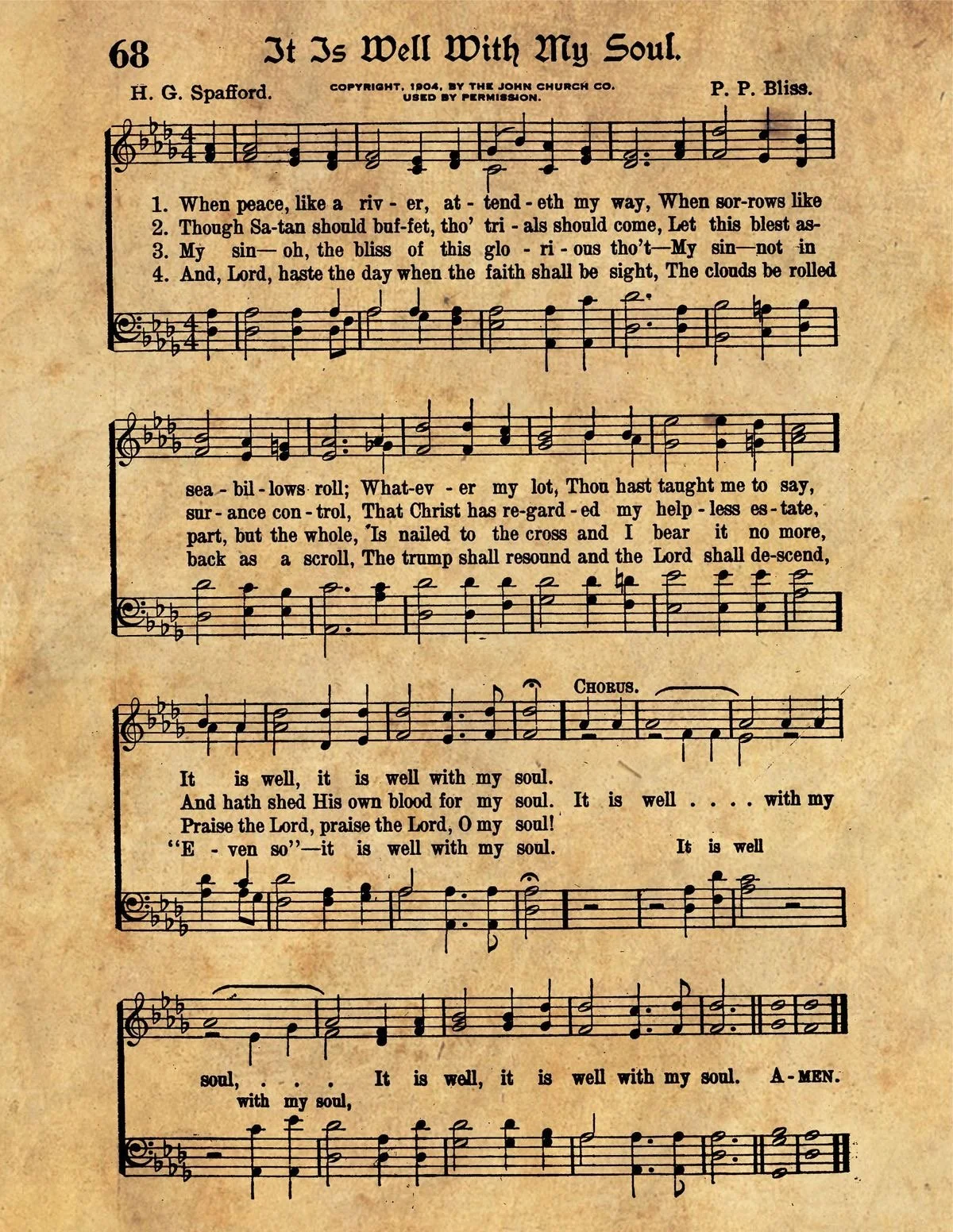From Sorrow to Song: The Incredible Story Behind ‘It Is Well With My Soul’
It Is Well With My Soul – Worship in the Storm
Some of the most powerful hymns we sing today were born out of deep suffering, and It Is Well With My Soul is one of them. For more than a century, it has comforted countless hearts, and its story has always been a moving reminder to me that worship is not just for the mountaintops—it is for the valleys, the storms, the moments when life feels overwhelming.
The Story Behind the Hymn
It Is Well With My Soul was written by Horatio Gates Spafford (1828–1888), a successful lawyer and devout Christian from Chicago. He was a man of faith, a husband, a father, and a supporter of evangelist Dwight L. Moody. But his life was marked by unimaginable sorrow.
First came the Great Chicago Fire of 1871, which destroyed nearly all of his real estate investments, leaving his family financially devastated. Around the same time, he and his wife Anna lost their young son to scarlet fever.
Just two years later, seeking rest and planning to assist with Moody’s revival meetings in England, Horatio sent his wife and four daughters—Annie (11), Maggie (9), Bessie (5), and Tanetta (2)—ahead on the S.S. Ville du Havre. He intended to join them shortly after, but was delayed by business.
On November 22, 1873, tragedy struck. The ship collided with another vessel and sank within minutes. Over 200 lives were lost—including all four of the Spafford daughters. Anna was one of the few survivors, rescued unconscious, clinging to a piece of wreckage. When she reached Cardiff, Wales, she sent Horatio a telegram with the heartbreaking words: “Saved alone.”
Shortly after, Horatio sailed across the Atlantic to reunite with Anna. As his ship passed near the place where the Ville du Havre had gone down, the captain pointed out the location of the tragedy. It was there, looking out over the waters that had swallowed his daughters, that Horatio penned these unforgettable words:
“When peace like a river attendeth my way,
When sorrows like sea billows roll;
Whatever my lot, Thou hast taught me to say,
It is well, it is well with my soul.”
These lines weren’t a denial of grief—Horatio still carried pain, questions, and sorrow. But they were a declaration of faith in the midst of loss. Even in the storm, Christ was still Lord, and the soul could rest in Him.
Horatio and Anna went on to have more children, though they endured further loss when another child died young. Later, they moved to Jerusalem, devoting their lives to serving the poor and sick through the American Colony. Horatio died there in 1888, remembered not for wealth or worldly success, but for his unshakable faith.
My Reflection
I remember the first time I really clung to this hymn. I was in a season of grief, whispering the words through choked-up tears:
“It is well with my soul.”
As hard as it was to say those words, deep down I knew they were true. My heart was full of pain, frustration, confusion, and hurt—but even there, I knew He had a plan. I couldn’t see the way ahead, but I knew He was in control. Sometimes, faith looks exactly like that: whispering words of trust while tears stream down your face.
When I think of Horatio Spafford, standing over the waters where his daughters drowned, proclaiming,
“It is well with my soul”
I am deeply moved. His grief wasn’t erased—but in that place of unimaginable loss, he declared trust in God’s goodness and sovereignty. That’s what struck me when I first learned this story—and it’s what has stayed with me ever since.
Faith like that doesn’t belittle grief. It doesn’t mean you’re not hurting or questioning. It simply means that even in the storm, there is a deeper peace anchoring you: Christ Himself.
And that’s what I clung to in my own storms. When I was upset, hurting, and grieving, I whispered it again:
“It is well with my soul.”
Those words became a lifeline. They reminded me that God is faithful, even when I don’t understand. They reminded me that He is good, even when my circumstances are not.
The Encouragement
This hymn has inspired me for years, and I believe it can encourage anyone walking through loss, pain, or storms. It doesn’t take away the suffering—we will still grieve, still cry, still hurt. But it shifts our perspective: our faith is not in this world, but in Christ alone.
Following Jesus doesn’t spare us from storms, but it anchors us in them. It gives us strength to endure, because we know He is right there with us.
Horatio Spafford’s story reminds us of a simple but life-changing truth: we can worship not only on the mountaintops but also in the valleys, not only in joy but also in sorrow. Because no matter what we face, we can say with confidence:
“It is well with my soul.”

